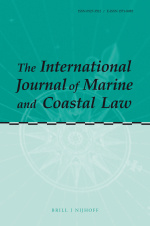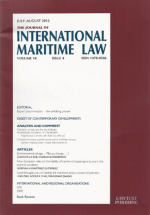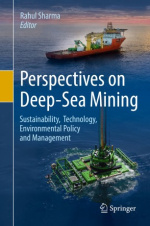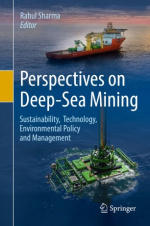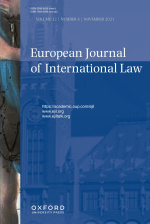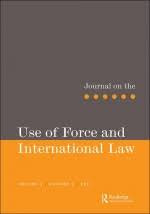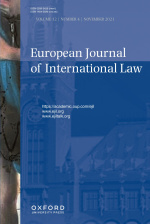Traditional and socio-ecological dimensions of seabed resource management and applicable legal frameworks in the Pacific Island States
Virginie Tilot, Bleuenn Gaëlle Guilloux, Klaas Willaert, Clement Yow Mulalap, Tamatoa Bambridge, François Gaulme, Edwige Kacenelenbogen, Alain Jeudy de Grissac, Juan Moreno Navas and Arthur Lyon Dahl
(2022) Perspectives on deep-sea mining : sustainability, technology, environmental policy...
Traditional knowledge, customary marine management approaches and integrated relationships between biodiversity, ecosystems and local communities promote conservation and ensure that marine benefits are reaped in a holistic, sustainable and equitable manner as fostered by contemporary ocean governance. However, the interaction between traditional knowledge, the present scientific approach to marine resource management and specific regulatory frameworks has often been challenging. To a certain extent, the value of community practices and customary rules, which has provided an incentive for regional cooperation and coordination, is acknowledged in several legal systems of the Pacific Island States and a number of regional and international instruments, but this important interconnectivity can certainly be perfected. Based on recent multidisciplinary research (Tilot et al., 2021a; 2021b), this chapter presents a science-based overview of the marine habitats and activities that would be affected by deep seabed mining (DSM) in the Pacific region, along with an analysis of the traditional dimensions and their interconnectivity with the socio-ecological aspects of marine resource management. We then assess whether the applicable regulatory frameworks attach sufficient importance to these traditional dimensions of seabed resource management and cultural representation in the Pacific region. On basis of this analysis, we identify best practices and formulate recommendations with regard to the current regulatory frameworks and seabed resource management approaches to reconcile competing values of the Pacific communities and to sustain the health of the Global Ocean.

